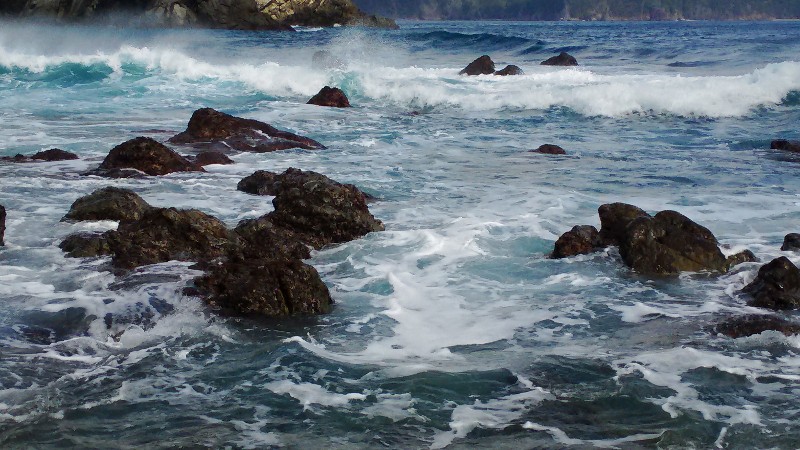本日から3回に亘り岡倉天心の『日本の覚醒』の中の『白禍』をお届けします。これがアメリカで出版されたのが1904年ですので日露戦争が勃発した年です。脱稿した時点ではまだ戦争の決着はついていませんでした。大国ロシアを相手に優勢に戦う日本への警戒、黄禍論が出てきた時代背景がありました。それに対し日本の立場と文化を西洋に理解してもらおうと流暢な英語で書かれた本です。天心の3部作は全部英語で書かれ、『日本の覚醒』の他に『東洋の理想』『茶の本』とありますが、どれも難解です。鈴木大拙や新渡戸稲造の英語の方がはるかに分かり易いです。文章が長いうえに難しい単語が使われているためです。福井藩が横浜に生糸を扱う貿易商店「石川屋」を作り、父覚右衛門を赴任させました。7歳の時から英語塾に入ったため英語はペラペラでしたが、漢籍の修養も積みました。東大卒業後、文部省の役人となり、フェノロサの通訳兼日本美術の調査をし、東京美術学校(現芸大)を設立、後に校長となるも内紛で追い出され、日本美術院を谷中に作って、大観、春草、観山達と行動を共にしました。その後、茨城県北茨城市に六角堂を建て、門下生の育成に励みました。朦朧体も天心の命を受け、大観、春草らが開発したものです。大観は天心を評して「あんな大きい人はいなかった。もうああいう人は生まれてこないだろう」とまで言っているのをTVで見ました。昔のエリートと今のエリートの違いです。
英語と日本語とを載せていますので、英語の苦手な方は英語は飛ばして日本語だけ読んでください。でも英語を訳し訳し読むと天心が何を考えていたか頭に残ります。今回はその一回目。西洋の宣教師が軍事侵攻の先兵として来、西洋は東洋を餌食と考えていたことを見抜いていました。「西洋の言う進歩とは何ぞや。私利私欲のためであるなら進歩を自慢することはできない。大きいだけでは真の偉大さとは言えない。」と。
THE WHITE DISASTER
To most Eastern nations the advent of the West has been by no means an unmixed blessing. Thinking to welcome the benefits of increased commerce, they have become the victims of foreign imperialism; believing in the philanthropic aims of Christian missionaries, they have bowed before the messengers of military aggression. For them the earth is no longer filled with that peace which pillowed their contentment. If the guilty conscience of some European nations has conjured up the specter of a Yellow Peril, may not the suffering soul of Asia wail over the realities of the White Disaster.
To the mind of the average Westerner it may seem but natural to regard with feelings of unmingled triumph that world of to-day in which organization has made of society a huge machine ministering to its own necessities. It is the rapid development of mechanical invention which has created the present era of locomotion and speculation,a development which is working itself out into various expressions, as commercialism and industrialism, accompanied by a tendency toward the universal occidentalization of etiquette and language. This movement, resulting in a rapid expansion of wealth and prestige, originated in a profound realization of the glory of manhood, of comradeship, and of mutual trust. The restlessness that constantly moves its home from the steamer to the hotel, from the railway station to the bathing resort, has brought about the possibility of a cosmopolitan culture. The nineteenth century has witnessed a wonderful spread in the blessings of scientific sanitation and surgery. Knowledge as well as finance has become organized, and large communities are made capable of collective action and the development of a single personal consciousness.
To the inhabitant of the West all this may well be food for satisfaction; to him it may seem inconceivable that others should think differently. Yet to the bland irony of China the machine appears as a toy, not an ideal. The venerable East still distinguishes between means and ends. The West is for progress, but progress toward what? When material efficiency is complete, what end, asks Asia, will have been accomplished? When the passion of fraternity has culminated in universal co-operation, what purpose is it to serve? If mere self-interest, where do we find the boasted advance?
The picture of Western glory unfortunately has a reverse. Size alone does not constitute true greatness, and the enjoyment of luxury does not always result in refinement. The individuals who go to the making up of the great machine of so-called modern civilization become the slaves of mechanical habit and are ruthlessly dominated by the monster they have created. In spite of the vaunted freedom of the West, true individuality is destroyed in the competition for wealth, and happiness and contentment are sacrificed to an incessant craving for more. The West takes pride in its emancipation from medieval superstition, but what of that idolatrous worship of wealth that has taken its place? What sufferings and discontent lie hidden behind the gorgeous mask of the present? The voice of socialism is a wail over the agonies of Western economics,—the tragedy of Capital and Labor.
But with a hunger unsatisfied by its myriad victims in its own broad lands, the West also seeks to prey upon the East. The advance of Europe in Asia means not merely the imposition of social ideals which the East holds to be crude if not barbarous, but also the subversion of all existing law and authority. The Western ships which brought their civilization also brought conquests, protectorates, ex-territorial jurisdiction, spheres of influence, and what not of debasement, till the name of the Oriental has become a synonym for the degenerate, and the word “native” an epithet for slaves.
白禍
多くの東洋民族にとって、西洋の到来は、まったくの幸福とはけっしていえなかった。彼らは、通商の増大を歓迎する気でいるうちに、異国の帝国主義の餌食になってしまった。彼らは、キリスト教宣教師の博愛的な目的を信じて、この軍事侵略の先ぶれに頭を垂れてしまった。彼らにとって、この地球はもはや、枕を高くして眠っておれる平和な場所ではない。 ヨーロッパ諸国民の罪悪感が黄禍の幻影をよびおこしたとするならば、アジアの苦悩する魂が白禍の現実に泣き叫ぶのは、当然ではなかろうか。
一般の西洋人にしてみれば、社会を組織化し、みずからの必要に奉仕する巨大な機械にかえてしまった今日の世界を、勝利感をもって眺めるのは、まったく当然のことかもしれない。機械的発明の急速な発展は、現在のような交通と投機の時代をつくりだし、この発展は.風俗や言語の西洋化傾向をともないながら、商業主義、工業主義など、さまざまの表現と なってあらわれている。国富と国威の急速な伸張をもたらしたこの動きは、もとはといえば 、人間性、友愛、相互信頼の栄光の自覚に由来するものであった。汽船からホテルへ、停車場へとたえずわが家を移す落着きのない生活は、世界主義文化の可能性をもたらした。十九世紀に、科学的公衆衛生と外科医術のめざましく普及した。経済とともに知識も組織化され、国家社会が集団的行動をとり、単一の意識を発展させることを可能にした。
西洋の住民にとって、これらすベては満足の種であろう。彼らには、それとちがった考え方をするものがいようなどとは、想像もできないことかもしれない。だが、中国のおだやかな逆説ヒよれば、機械は玩具であって、理想ではない。古き東洋は、今なお手段と目的とを区別する。西洋は進歩を信じているが、いったい、何にむかっての進歩であろうか?アジ アは尋ねる——完全な物質的能率がえられたとして、そのとき、いかなる目的がはたされたというのであろうか?友愛の熱情がたかまり、世界の協力が実現されたとして、そのときそれは何を目的とするのであろうか?もしそれが、たんなる私利私欲であるならば、 西洋の誇る進歩は、はたしてどこにあるのか?
西洋の栄光には、不幸にしてこの裏面がある。大きいだけでは、真の偉大ではない。贅をつくした生活が、すなわち文化であるとはいえない。いわゆる近代文明を構成する個人は、機械的慣習の奴隸となり、みずからがつくりだした怪物に容赦なく追いつかわれている。西洋は自由を誇っているが、しかし、富をえようと競って、真の個性はそこなわれ、幸福と満 足はたえずつのってゆく渴望の犠牲にされている。西洋はまた、中世の迷信から解放されたことを誇っているが、富の偶像崇拝にかわっただけのことではないのか?現代のきらびやかな装いのかげにかくされている、苦悩と不満はどうなのか?社会主義の声は、西洋経済の苦悶—資本と労働の悲劇——の声にほかならない。
ところが、その広大な地域で無数の犠牲者を出してもなお満足せず、西洋は、東洋までも餌食にしようとしている。ヨー ロッバのアジア進出は、東洋にとって、野蛮でないにしても粗雑としか思えない社会思想のおしつけであるばかりか、現存のあらゆる法と秩序の破壊を意味する。西洋文明をもたらした彼らの船は、それとともに、征服、保護領、治外法権、勢力圏、その他さまざまの悪しきものをはこんできた。そしてついには、東洋といえば退化の同義語になり、土着民といえば奴隸を意味するにいたった。
